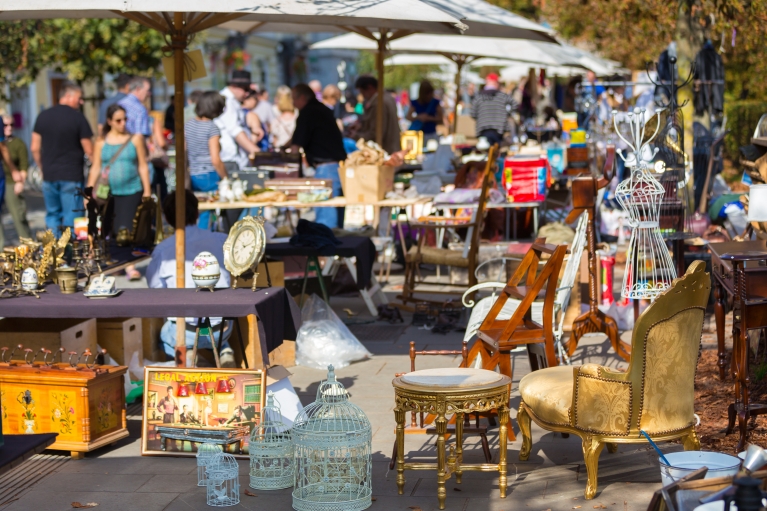
Love shopping on your travels? Here’s how to do it more sustainably
November 1, 2023
A new pair of jeans. A trendy scarf. A unique t-shirt or two.
An afternoon of shopping in a new place can feel like opening up a treasure chest, offering a fascinating look into local culture and style.
At the same time, plenty of travelers are wary of the negative effects of consumerism on the environment and communities around the world, from pesticide usage during the cotton production process to the presence of microplastics in textiles.
The scale of fast fashion and clothing waste is well documented – according to the European Commission, more than 5 million tonnes of clothing and footwear are thrown away annually in the European Union, equalling about 12 kg per person.
“The problem with fast fashion is that…you produce garments that are planned to be thrown away” in the matter of a few months or a season, said Roman Danko, the principal of Humana Zagreb, a cooperative that carries out reuse projects and sells donated clothes, textiles and household items. “It's a perfectly illogical system.”
Fortunately, there are a few simple — and enjoyable — ways to shop more sustainably on your travels. Below, you'll find some tips.

Opt for secondhand or locally-made clothing and souvenirs
One way to deepen the experience of shopping on your travels? Seeking out businesses that stock locally-owned products and secondhand stores, such as Humana Zagreb’s retail location in the Dubrava area of Zagreb.
Through purchasing clothing and gifts at thrift stores, you give a second life to items that could otherwise end up in a landfill. And by purchasing locally-made items, you can take home a piece of your destination, while supporting a business based directly in the place you are visiting.
Another enriching way to shop while traveling? Danko notes that many European cities are home to weekly flea markets that both locals and visitors can use to pick up pre-owned clothes, books, records, and other mementos.
Broken zipper? Find a repair shop
From worn-out shoe soles to damaged backpack zippers, traveling can be hard on our clothing and accessories. The next time one of your possessions gets damaged on a trip, consider searching for a repair shop instead of simply replacing the item.
“Our family, we are trying to repair and fix everything we can,” Danko said.
Seeking out a local cobbler, tailor, or repair expert on your travels can be a win-win scenario. This solution helps travelers reduce their footprint, while allowing them to support their destination’s local economy.
In the future, clothing may be even simpler to fix. The European Union is working on new design requirements for textiles to make them last longer – and easier to recycle and repair.
Donate clothing
Some travelers, especially those who enjoy shopping and have been on the go for a few weeks, have trouble fitting their clothing and new purchases into their luggage before returning home.
If you’re considering leaving some clothing behind on your travels, take time to research whether there are clothing centers or donation bins you can use to give your items a second life. According to the European Commission, under 25% of post-consumer textile waste is gathered separately for recycling or reuse. The rest is often sent to a landfill or incinerated.
Humana Zagreb has distributed containers called “t-boxes,” designed to collect clothing donations. 150 tonnes of clothing and textiles are collected by Humana Zagreb annually, cutting roughly 2,000 tonnes of carbon dioxide emissions.

On the left, Humana Zagreb's retail space. On the right, bags of donated clothing collected by Humana Zagreb. (Credit: Humana Zagreb)
Share essentials with friends and fellow travelers
A bonus tip: if you’re traveling for a week or longer, you will likely need to stock up on shampoo, soap, and other essentials.
Instead of picking up a travel-size shampoo bottle, the European Union’s youth portal recommends purchasing a large bottle to share with your travel companions.
“If you travel in a group of friends, consider sharing one big bottle of shampoo, body lotion, shower gel, et cetera,” the portal explains. “Each of you can carry one item with them. One big bottle produces less plastic than carrying minis with you.”
Stay up to date with Eurail
Change of currency
You cannot change the currency once you have a Pass in your cart. Remove the Pass, and then change the currency on the website header.






